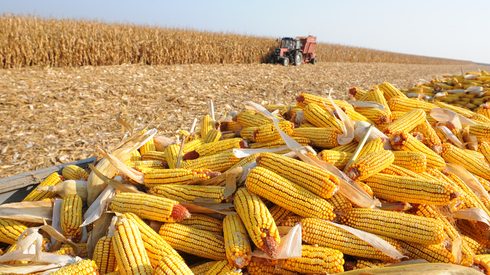Long-running discharging delays and congestion at key Spanish ports has hurt buying appetite for the country’s importers and added to a picture of contracting domestic demand, trade sources have told Fastmarkets Agriculture in a move that could have consequences for one of Europe’s biggest grain importers.
Despite recent improvements, some ports – particularly Tarragona, on Spain’s east coast – are still experiencing vessel discharge delays of up to 10 days, while back in October the waiting time was even higher.
That has been part of a domino effect, sparked as deliveries from the country’s main suppliers did not arrive at the expected time, as loading delays among key export partners have affected many on the supply side – with most of Spain’s imports drawn from either the Black Sea or South America.
In Brazil, corn has had to compete with a huge soybean export program which has strained the country’s own export logistics as it simultaneously copes with the twin dynamics of its biggest ever corn and soybean crops.
In the Black Sea, the Ukrainian export grain deal was stopped in mid-July, when Russia pulled out of the four-way agreement with a huge number of ships still stranded in the queue waiting for inspection at Istanbul.
Meanwhile, generally high traffic in Romania – as the country stepped in to export both its own corn and Ukrainian stocks – meant it too suffered delays to loadings.
That all led to a situation where corn started to arrive to Spain later than had been expected – and generally arrived simultaneously rather than in a managed flow.
And, even though the significant delays started back in September, the consequences are still evident.
View our corn prices
Domestic outlook
At the same time, internal demand for feed grains was already slowing down amid a decline in livestock feed, in a move that led to slow discharge rates and slower deliveries to the domestic market.
That caused further shocks to the supply chain, as the slow pull from the internal market meant port storage remained reasonably full and further limits the capacity to unload the new vessels arriving.
For the 2023-24 marketing year, the USDA has already predicted a drop in cattle and pork production in Spain amid a decline in projections for exports outside the European Union and the sector’s relatively high production costs, which means potentially lower demand for feeds.
Spain is the biggest European grain importer, with annual imports of around 7 million tonnes of corn and 2 million of wheat on average over the last three years.
So far in the 2023-24 marketing year, corn imports have reached 2.7 million tonnes, which is almost 39% down compared to the same stage a year ago, although at the same time feed wheat imports have been higher at 1.97 million tonnes.
That is almost double the volume imported at the same time last year, according to the European Commission data, and comes amid heavy falls in wheat prices following last year’s Russian invasion of Ukraine.
View our grains and oilseeds prices





